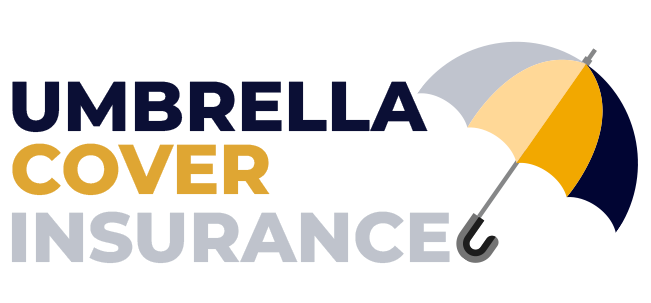Umbrella insurance serves as a critical safety net, offering additional liability coverage beyond the limits of standard insurance policies. However, understanding the exclusions and endorsements associated with umbrella insurance is essential for ensuring that you have comprehensive protection against potential risks and liabilities. In this blog article, we’ll delve into the intricacies of umbrella insurance exclusions and endorsements, empowering you to make informed decisions about your coverage needs.
What Are Exclusions and Endorsements?
Before we dive into the details, let’s clarify what we mean by exclusions and endorsements in the context of umbrella insurance:
-
Exclusions: Exclusions are specific scenarios or types of liabilities that are not covered by your umbrella insurance policy. These exclusions may vary depending on the insurance provider and policy terms but typically include intentional acts, criminal activities, and certain types of business-related liabilities.
-
Endorsements: Endorsements, also known as riders or add-ons, are optional enhancements to your umbrella insurance policy that provide additional coverage beyond the standard policy terms. Endorsements allow policyholders to customize their coverage to meet specific needs or address unique risks.
Understanding Exclusions
When reviewing your umbrella insurance policy, it’s crucial to carefully examine the list of exclusions to understand the limitations of your coverage. Common umbrella insurance exclusions may include:
-
Intentional Acts: Umbrella insurance typically does not cover intentional acts or intentional damage caused by the policyholder. This exclusion protects the insurance company from fraudulent or criminal behavior.
-
Criminal Activities: Liabilities arising from criminal activities, such as illegal drug trafficking or money laundering, are typically excluded from umbrella insurance coverage.
-
Business Activities: While umbrella insurance may provide coverage for personal liabilities, it generally does not extend to business-related liabilities. Separate business insurance policies are typically required to cover liabilities arising from business activities.
-
Professional Liabilities: Umbrella insurance may exclude coverage for professional liabilities, such as errors and omissions or malpractice claims, which are typically covered under professional liability insurance policies.
-
Contractual Liabilities: Certain contractual liabilities, such as breach of contract claims, may be excluded from umbrella insurance coverage unless specifically endorsed.
Understanding these exclusions is essential for ensuring that you have realistic expectations about the scope of your umbrella insurance coverage and identifying any potential gaps in protection that may need to be addressed.
Exploring Endorsements
While umbrella insurance policies come with standard coverage terms, policyholders have the option to enhance their coverage by adding endorsements or riders. Common umbrella insurance endorsements may include:
-
Additional Liability Coverage: Endorsements can provide additional coverage for specific liabilities that are not covered under the standard policy terms, such as libel, slander, or defamation claims.
-
Legal Defense Costs: Some endorsements may cover legal defense costs associated with defending against covered claims, including attorney fees, court costs, and settlements or judgments.
-
Coverage for Specific Activities: Endorsements may be available to provide coverage for specific activities or hobbies, such as recreational boating or off-road vehicle use, which may not be covered under the standard policy terms.
-
Identity Theft Protection: Endorsements can provide coverage for expenses related to identity theft, such as credit monitoring services, identity theft resolution services, and reimbursement for lost wages or legal expenses.
-
Coverage for Non-Owned Vehicles: Endorsements may extend coverage to non-owned vehicles, such as rental cars or vehicles owned by friends or family members, when they are not covered by primary insurance policies.
By adding endorsements to your umbrella insurance policy, you can tailor your coverage to meet your specific needs and enhance your protection against a wide range of risks and liabilities.
Tips for Understanding and Managing Exclusions and Endorsements
To ensure that you fully understand your umbrella insurance exclusions and endorsements and make the most of your coverage, consider the following tips:
-
Read Your Policy Documents Carefully: Take the time to review your umbrella insurance policy documents thoroughly, paying close attention to the sections that outline exclusions and endorsements. Understanding the terms and conditions of your policy is essential for making informed decisions about your coverage.
-
Ask Questions: If you have any questions or concerns about the exclusions or endorsements in your umbrella insurance policy, don’t hesitate to reach out to your insurance agent or broker for clarification. They can provide valuable insights and guidance to help you understand your coverage options.
-
Consider Your Coverage Needs: Assess your coverage needs and consider how exclusions and endorsements may impact your overall risk management strategy. If certain exclusions leave you exposed to significant risks, explore options for adding endorsements to address those gaps in coverage.
-
Regularly Review Your Coverage: Life circumstances and liability risks can change over time, so it’s essential to regularly review your umbrella insurance coverage to ensure that it remains aligned with your needs. If your circumstances change or new risks arise, consider updating your coverage accordingly.
-
Seek Professional Advice: If you’re unsure about which endorsements to add to your umbrella insurance policy or how exclusions may affect your coverage, consider seeking advice from an insurance professional. They can provide personalized guidance and recommendations based on your specific situation.

